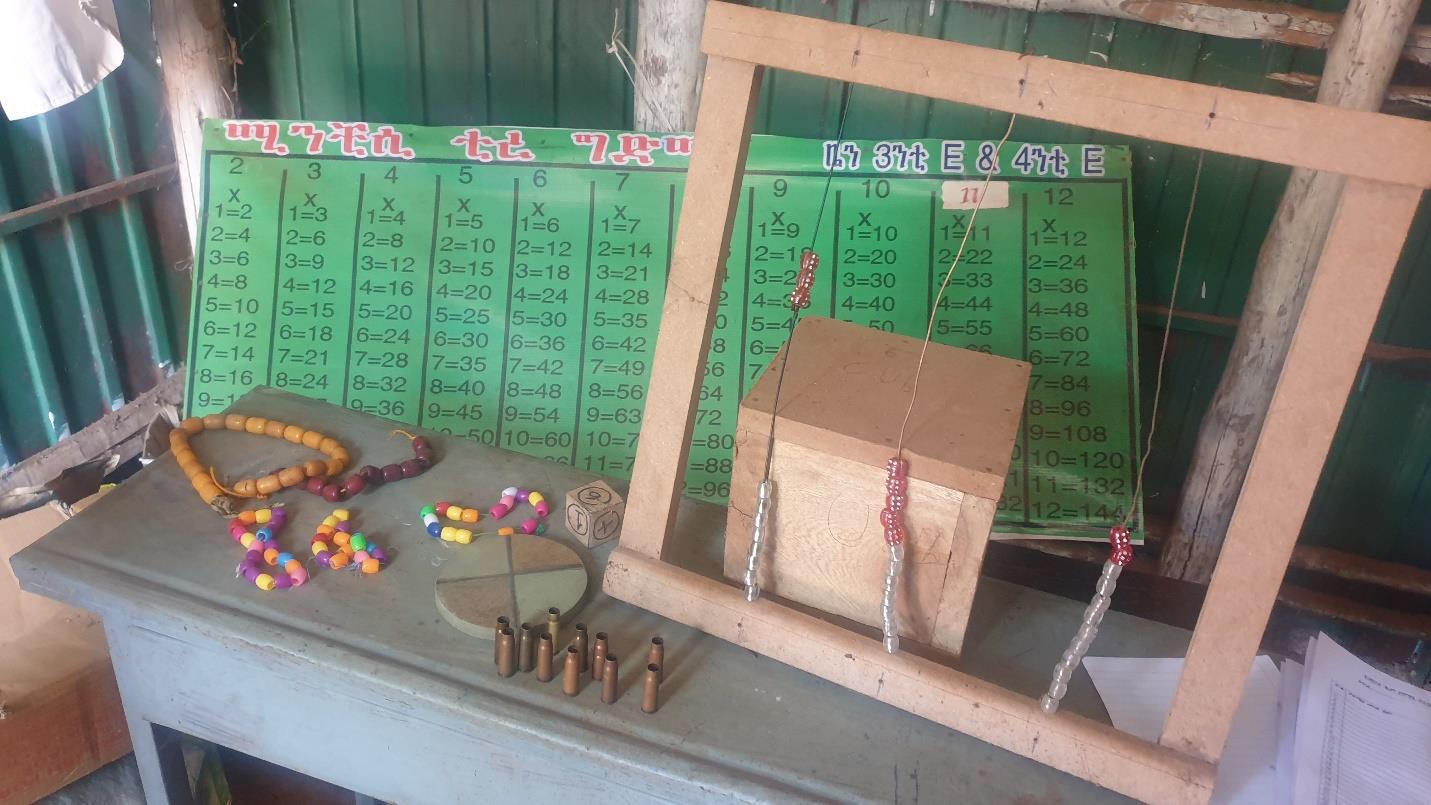
The VSO programme ‘Sharing skills to give thousands of school children a solid base in Ethiopia’, was finalised in 2021. What was this successful programme about? And how have we ensured that 21.000 children in Ethiopia now have better future perspectives? This and more you can find in our 2021/2022 Annual report and in article below.
Although most children in Ethiopia enrol in school, many do not complete their education: only 54 percent makes it past Grade 8 (until 14 years of age). In addition, about three million children do not attend school at all. Disabilities, traditional gender norms, a high burden of domestic work (especially for girls) and long distances to school are some of the barriers to education. Many of the out-of-school children are from pastoralist, internally displaced or refugee communities.
A solid base for children
From 2016-2021 VSO, supported by Dutch foundations and Dutch public donations, conducted the programme ‘Sharing skills to give thousands of school children a solid base in Ethiopia’. This
programme reached pre-primary and primary age children in one of the most deprived regions, Benishangul Gumuz. We increased participation and improved the learning outcomes of the most marginalised children, by addressing the system-level barriers that can hold them back.
The programme had a holistic approach where we combined teacher training with improving the quality of instruction at the teacher training college, while youth volunteers were raising awareness in the community about gender issues, children with disabilities and peaceful communication. We strengthened the relationship between parents, schools and district education bureaus and supported the poorest families with income generation trainings and grants in order to send their children to school.
Besides that, we delivered material for children with disabilities, built special needs classrooms at schools with equipment to diagnose and support children with disabilities and learning problems and supported special needs teachers in their work. To address the language problem for children from minorities, we built pre-school classrooms where children could learn the language during play in interactive education, dealing with children with disabilities and learning problems, and with children with traumas and ethnic tensions in the schools.
Results in 2021
In 2021 we built extra classrooms to absorb the children and teachers that were fleeing from the conflicts. Sixty youth volunteers were trained to visit the refugee camps and support the poorest families, to link them to the right people for help and to bring their children to school. They also identified children with disabilities and visited the families for support. Almost 200 families were trained and mentored to set up small businesses, like sheep rearing and chicken hatching. Each family received an investment capital, which can be withdrawn in tranches from the bank if the children are going to school regularly, so when signed for by the school director. The instructors of the two Teacher Training Colleges became excellent trainers in psycho-social support in the classroom, and in child friendly education. Every school now has a parent-teacher committee to support children with disabilities and learning difficulties, and know where to find help if needed.
In 2021 the programme was finalised, after years of engagement by many Dutch foundations and private donors. Thanks to their flexibility, the programme has been adjusted many times to different shocks, such as ethnic conflicts, COVID-19 and rising poverty. The ‘VSO approach’ became an example for other organisations: the combination of improving education, supporting the poorest families with income generation, the focus on children with disabilities and minority children, and supporting teachers to deal with traumatised children in school worked very well to bring the most marginalised children in school.


“VSO inspired me to focus on vulnerable and affected children”
Mastwal Berhanu (15) used to live in Benshangul Gumuz (Ethiopia). When an ethnic conflict broke out in her village, she witnessed a young relative being killed and slaughtered by rebels. Since
then, Mastwal has been traumatised and her psychosocial health has deteriorated.
In November 2021, her family they took her to one of the VSO target schools, where VSO reestablished and strengthened a Special Needs Resource Centre. Her teacher reports: “When she first came here, she did not respond to our questions. She was not able to handle her pen because she was afraid blood would pour out of it. She would fall down in the classroom and shout: “Oh, they are coming! The rebels are coming!” and she wanted to run away.
She was linked with a local hospital, where she was treated free-of-charge. She received psychiatric guidance, counselling and medication. At school she received support
including physical exercise and personal hygiene. As a result, Mastwal’s emotional wellbeing has significantly improved. “She can now communicate”, her teacher says. “She tells us about her feelings, she stays in the classroom and can hold her pen and exercise books.”
The head master, Ato Telayneh, played a crucial role in Mastwal’s support. He says: “VSO inspired me to focus on vulnerable and affected children, such as those with disabilities and who are displaced. Thanks to VSO, I obtained training on psychosocial support and learnt how to welcome, treat and provide support to such children.”
Since VSO started operating in the area, schools have become more open for marginalised and vulnerable children. The enrolment and attendance of children with disabilities and who are displaced significantly increased.
The power of our collective action
We are grateful to all those individuals, institutions and companies who have worked with us in the last year. Together we have shown we can work with the most vulnerable to change our world for the better. This is the power of our collective action! Read our annual report and find out what more we have achieved in 2021/2022.
